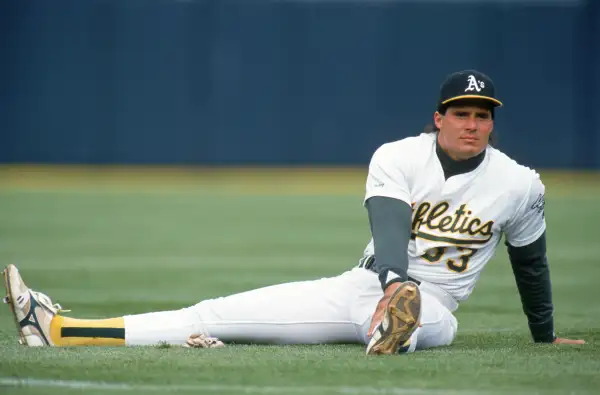Jose Canseco Is Very Concerned About Japan's Negative Interest Rates

Japan is currently employing a bold strategy to curtail its hurting economy—lowering its central bank interest rates below zero percent. And former Major League Baseball slugger Jose Canseco is not happy about it.
"Negative interest rates in Japan is blowing my mind," the former outfielder who hit 462 home runs in his legendary, scandal-ridden career tweeted late Wednesday night.
For those not apprised of Japan's interest rate strategy, the idea is that having negative interest rates means that financial institutions in Japan are charged a fee for parking unused money in the central bank. This is supposed to motivate them to lend it or use it. Here's a more comprehensive explainer.
Canseco doesn't agree. He continued his disapproval:
Canseco is not wrong to say that it creates a loanee's market. After all, it would require a very low interest rate for a regular person in Japan to want to take out a mortgage, and negative interest rates from the Bank of Japan would motivate lenders to do so.
As for Canseco's position that it won't help hit target inflation rates, it's possible he's right, but the move isn't a dumb one. Combined with the Bank of Japan's buying up of a ton of public debt—this is called quantitative easing, which is a strategy the US employed after the financial crisis—negative interest rates may not be enough to hit the 2% as Canseco says, but this emergency measure has a more conservative goal: to prevent de-flation.
True to form, other Twitter users began to heckle Canseco, the author of a memoir about his wild times as a pro player, entitled Juiced: Wild Times, Rampant 'Roids, Smash Hits, and How Baseball Got Big. However, this is not Canseco's first brush with a hater. He was ready and dealt with every attack with signature panache.
Canseco's tweeting got the attention of Bloomberg's Joseph Weisenthal, who asked whether Canseco might like to come on his show and chat. Canseco inquired about the budget, and Weisenthal asked him to do it gratis, citing a good conversation as the consideration.
Self-aware and understanding, like Trump, that a colorful, high-profile baseball player talking about a foreign economy would represent a significant ratings boost, Canseco declined, indicating how he would come up short in the deal. Plus, "time is money," and no one wants to be condescended to on TV, especially not without getting something out of it personally.
Weisenthal graciously accepted the rejection, and Canseco offered a hug. No word from Japan.